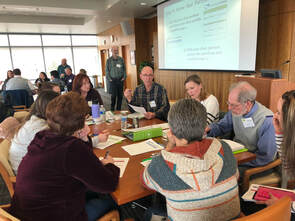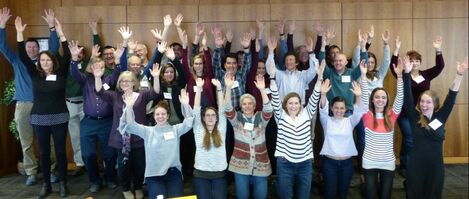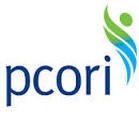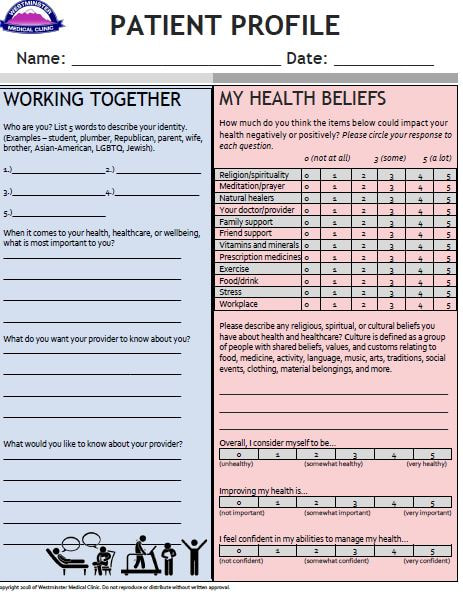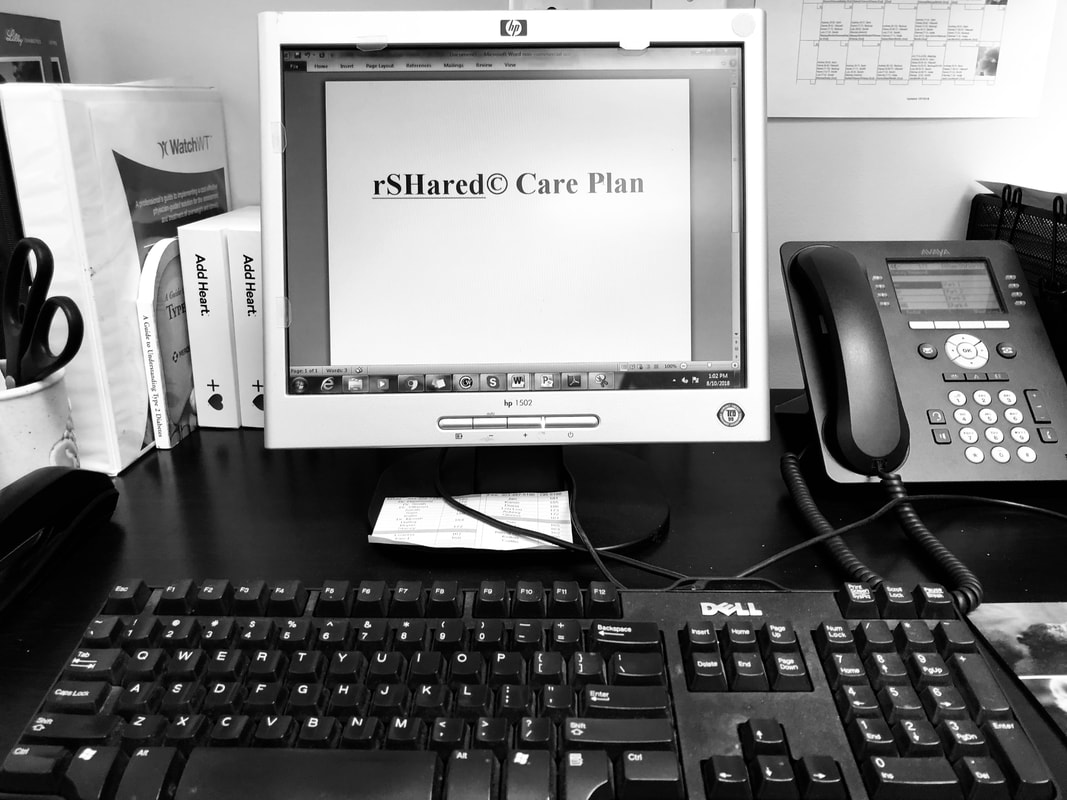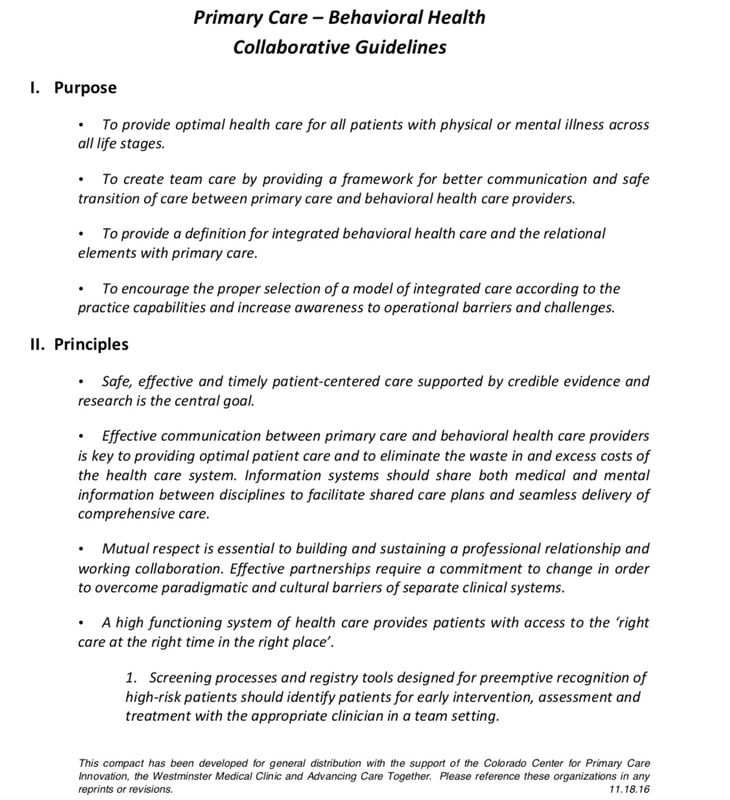Practice-Based Research
Introducing the
Aspen Renaissance Transformation Team!

Westminster Medical Clinic has served as the primary beta site for all past innovations from the Colorado Center for Primary Care Innovation since 2003. CCPCI has expanded its reach by creating the Aspen Renaissance Transformation Team in 2018. This team recognizes Larry Green, M.D.’s pioneering work (ASPN) in practice-based research and strives to return humanism to health care, as well as, nurture the art of medicine. ART2 brings together the best, innovative family medicine clinicians in Colorado to drive new ideas in primary care, find dynamic ways to improve patient care, and to support primary care sustainability. The Center collaborates with ART2 to design, implement, and study initiatives to enhance healthcare for patients in our local community and beyond.
Our team includes:
- R. Scott Hammond, MD, FAAFP, Westminster Medical Clinic, Westminster, Colorado
- Glenn Kotz, MD, FAAFP, MidValley Family Practice, Basalt, Colorado
- Mark Hinman, MD, Hinman Family Medicine, Longmont, Colorado
- Glenn Madrid, MD, Primary Care Partners, Grand Junction, Colorado
- Patrick Page, MD, Primary Care Partners, Grand Junction, Colorado
Meet our Art2 Advisory Committee Members!
Our team includes:
- R. Scott Hammond, MD, FAAFP, Westminster Medical Clinic, Westminster, Colorado
- Glenn Kotz, MD, FAAFP, MidValley Family Practice, Basalt, Colorado
- Mark Hinman, MD, Hinman Family Medicine, Longmont, Colorado
- Glenn Madrid, MD, Primary Care Partners, Grand Junction, Colorado
- Patrick Page, MD, Primary Care Partners, Grand Junction, Colorado
Meet our Art2 Advisory Committee Members!
Current Projects
Engaging Our Community to Combat Loneliness in Colorado
Locations: Across Colorado - Westminster, Basalt, Longmont, Denver, Grand Junction, Rocky Ford, and Carbondale
|
Loneliness is a newly-recognized social determinant that impacts mortality and morbidity. In research, loneliness shows a similar health impact to smoking 15 cigarettes a day. Currently, the ART2 clinicians are screening for loneliness using a validated screening within their patient populations to identify the need and prevalence. Once patients are identified, CCPCI will then provide training to support ART2 practices in implementing a protocol to treat loneliness, which will include providing social and education activities in group settings facilitated by a health coach or community educator and developing access to behavioral health services for cognitive behavior therapy and mindfulness-based techniques. Throughout the process, CCPCI will support the ART2 practices in leading a series of activities to engage the community about loneliness. Click the file below to learn more about our project!
| |||||||
ART2 Conference - March 1-2, 2019
Location: University of Colorado Anschutz Medical Campus
|
The first ART2 Conference was a great success! Thank you to all the Colorado practices who joined. CC4PCI sponsored the two-day conference, which brought together 6 medical practices from across Colorado. The agenda was packed with lively discussions and informative lectures from loneliness to practice-based research. The conference was a place to connect, share, and collaborate and was truly a great kick off to the ART2work ahead.
Check out the photos and videos from the conference! |
Patient Advisory Council
Location: Westminster Medical Clinic
Principal Investigator: R. Scott Hammond, M.D., FAAFP
|
The Patient Advisory Council (PAC) at Westminster Medical Clinic began at the start of Tier 1 of the PCORI Pipeline to Proposal grant. Throughout Tier 1, the members of the Board provided valuable qualitative data to improve both clinic environment and communication with the intention of creating a more health literacy friendly environment. The primary function of the Board is to develop and improve ways for patients to provide input to the clinic so services reflect the values of the Patient-Centered Medical Home Model. In providing CCPCI and Westminster Medical Clinic with the patients’ perspective, the clinic will have further information to move ahead in patient-centered outcomes and research.
To learn more about the Patient Advisory Council and get up to date on current board projects, check out: https://www.westminstermedicalclinic.com/patient-advisory-council.html |
The Patient Profile©
Location: Westminster Medical Clinic
Principal Investigator: R. Scott Hammond, M.D., FAAFP
|
In modern healthcare delivery, a fundamental disparity occurs throughout the population. The disparity “Health literacy level” is defined by the Affordable Care Act as: “the degree to which an individual has the capacity to obtain, communicate, process, and understand basic health information and services to make appropriate health decisions”. The Colorado Center for Primary Care Innovation (CCPCI), in collaboration with Westminster Medical Clinic (WMC), seek to pilot a new strategy at the point-of-care to improve patient outcomes. The strategy is a tool called The Patient Profile© which aims assess and collect a patient's culture, background, understanding level of reading a prescription, and additional information relevant to fulfilling a care plan. The Patient Profile© is used to gather patient beliefs, personality, learning and communication styles, as well as, assess health literacy level to tailor interventions with patients at the point of care.
Check out our recent publication in the Annals of Family Medicine to learn more: http://www.annfammed.org/content/16/3/271.full
For more information about how to implement and use the Patient Profile,
please contact us at [email protected]. | |||||||||||||||
rSHared Care Plan©
Location: Westminster Medical Clinic
Principal Investigator: R. Scott Hammond, M.D., FAAFP
|
The rSHared Care Plan© (SCP) at Westminster Medical Clinic is a digital, comprehensive application of critical patient information generated by the primary care clinician. The purpose of the SCP is to embed the problem list into a comprehensive, system-based summary to outline needs, goals and next steps in care for the entire care team. A 2018 publication in Annals of Family Medicine states the purpose best: The goal-directed health care model proposes an approach that uses patients’ life and health goals to guide health care professionals in cocreating personalized care plans that are responsive to the shared priorities, needs, preferences, and values of patients. The patient and care team may each access the SCP. Patient beliefs, numeracy, and low health literacy data and the concomitant recommendations in what and how to delivery care with patients are embedded into the SCP.
|
The Medical Neighborhood
Location: Westminster Medical Clinic
Principal Investigator: R. Scott Hammond, M.D., FAAFP
|
In the United States, health care is fragmented as patients receive uncoordinated care from numerous providers and facilities. Communication and collaboration among providers is essential for patients to make safe transitions in various locations of care. The Medical Neighborhood is a system of care that integrates primary care with the medical community through enhanced, bidirectional communication and collaboration on behalf of the patient. The Westminster Medical Clinic created several Compacts to bridge this gap to improve the communication and safe transitions outside the primary care office.
|
|
|
|
| ||||||||


